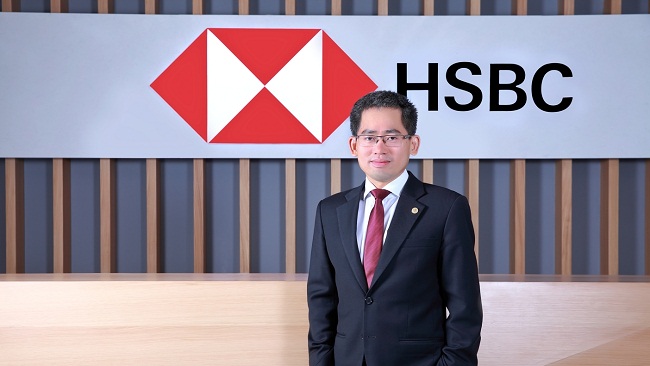Vietnam turns semiconductor vision into action
The global semiconductor industry is being reshaped by geopolitical tensions, shifting supply chains, and the surge of digital technologies.




The strong commitment to an open, fair and rules-based trade of the EVFTA will further widen export markets for Vietnam, especially in textile and garment, agriculture and fishery, and wood furniture, says HSBC Vietnam CEO Pham Hong Hai.

According to HSBC analysts, industries like textile and garment, and footwear, of Vietnam are expected to benefit the most from the EU-Vietnam free trade agreement (EVFTA).
Export of textile and garment and footwear from Vietnam to Europe reached around $9 billion in 2018. The average tariff applied by the EU on these products is at 9 per cent. These tariffs are going to be eliminated within three years or right after the EVFTA coming into force for less sensitive products.
Apart from the benefits, there are still many things to do so that the country can fully gain from the agreement.
“We need to be well aware that Vietnam needs to build a strong domestic textile and garment industry with lower import components to be able to capture all the benefits. Strict requirements on certificate of origin towards all apparels imported to Europe can lower the benefits for Vietnam when a majority of main materials are imported from other markets,” notes Hai.
According to the CEO, there are some companies with large production scales and FDI businesses that have capabilities to ensure a strong domestic ratio of materials and accessories compliant to certificate of origin required by the agreement at present.
Apart from organic growth of enterprises which should be a priority, guidance and initiatives of the government to provide knowledge and improve awareness of businesses are necessary.
Some good examples include projects to develop supporting industries, guidance on Vietnam’s commitments to members of EVFTA, what companies need to do, commitment to the environment, intellectual property protection, certificate of origin, and so on.
“Thorough administrative reforms to simplify im-export procedures and improve legal frameworks to meet the requirements of international and European standards about labour conditions, intellectual property should be also a priority,” says Hai.
The agreement, expected to be signed in Hanoi on June 30, is creating more opportunities of smooth trade access between Vietnam and the big market of 28 members of EU.
The European Commission considers the agreement the most ambitious one that EU has signed with a country, reflecting the strong position of Vietnam being the second largest trade partner in ASEAN of EU, only after Singapore. The bilateral trade of the two sides has increased 20 times over the past two decades with annual trade value reaching €50 billion, bringing Europe to the second largest export market of Vietnam, following the US.
EVFTA will remove 99 per cent of the tariffs between the two sides, in which 65 per cent of export tariff from EU to Vietnam would be eliminated right after the agreement coming into force. The remaining tariff would be phased out in 10 years. 71 per cent of export tariff from Vietnam to EU would also be eliminated and the remaining to be reduced within seven years.
Being a modern agreement, EVFTA includes content relating to intellectual property protection, freedom of investment and sustainable development.
Negotiation rounds of EVFTA started in 2012, which means governments and business community of the two sides have had quite a long time to prepare for this agreement before it is going to come into effect.
HSBC expects the agreement will increase an average of 0.1 per cent (with range of 0.0 – 0.3 per cent) annual real GDP of Vietnam purely due to trade impacts. Upon complete effect, the high standards of EVFTA will accelerate Vietnam’s pace of reforms and global integration.
The European Commission estimates that exports from Vietnam to Europe will increase at around 18 per cent, hence widening Vietnam’s trade surplus with the bloc. The agreement is also expected to bolster FDI flow from Europe to Vietnam, which would accelerate the development of Vietnam. The average investment from EU to Vietnam reached around $800 million in the period of 2010-2017.
“EVFTA is one of the most expecting agreements of Vietnam and I believe Vietnam will take actions to capture most of the benefits while tackling challenges to further boost the development of the country in a sustainable way.”
“Putting aside economic benefits that the EVFTA is set to bring to the country, I welcome all sustainable development measures that the agreement covers such as a commitment to implement the Paris climate agreement, a commitment to respect and implement the principles of the International Labour Organization (ILO) concerning fundamental workers’ rights.”
“Being the leading international bank with mission to finance international trade, HSBC appreciates and welcomes this free trade pact,” Hai said.
The global semiconductor industry is being reshaped by geopolitical tensions, shifting supply chains, and the surge of digital technologies.
The change in APA approval authority is expected to shorten processing time and enhance business proactiveness in international tax negotiations.
As hybrid cloud systems grow more complex, Vietnamese enterprises are struggling to detect cybersecurity threats moving laterally within their own networks.
The submission of the draft resolution on Vietnam’s international financial center to the National Assembly heralds a new developmental era for the country.
More than just running a 5-star resort, Kristian Petersen is redefining the art of hospitality with a humane and sustainable leadership philosophy.
For Tyna Huynh, co-founder of Drinkizz, organic is not just a food choice but a way of life that fosters a deep connection between people, nature and community.